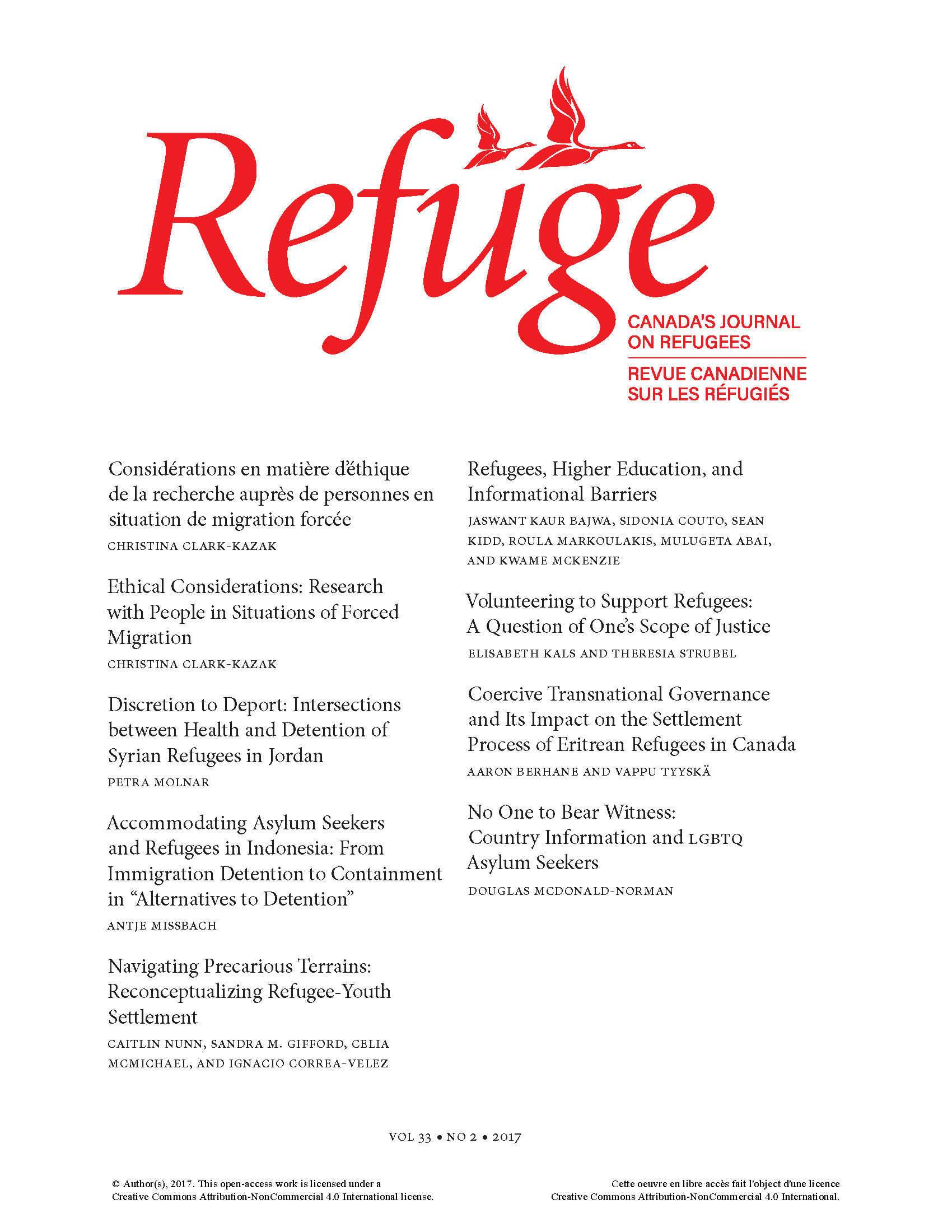Ethical Considerations: Research with People in Situations of Forced Migration
DOI:
https://doi.org/10.7202/1043059arKeywords:
forced migration, research ethics, ethics, research with human beings, best practicesAbstract
Research can contribute to better understanding of the forced migration experience to inform policy and programming, but it can also cause inconvenience and harm to research respondents.[1] In situations of forced migration, the stakes are particularly high because of precarious legal status, unequal power relations, far-reaching anti-terrorism legislation, and the criminalization of migration. In response, the Canadian Council for Refugees, York University’s Centre for Refugee Studies, and the Canadian Association for Refugee and Forced Migration Studies collaborated to complement established ethical principles with specific ethical considerations for research with people in situations of forced migration. This document highlights our guiding principles and applies the ethical concepts of voluntary, informed consent; respect for privacy; and cost-benefit analysis. It is of relevance to anyone involved in gathering information—whether in an academic or community setting—and those who are asked to take part in research.
[1] Recognizing power relations inherent in facilitating true participation, this document uses the term respondent to indicate those individuals who are providing information as part of the research. In some ethics documents, the term human subject is used.
Metrics

Downloads
Published
How to Cite
Issue
Section
License
Copyright (c) 2017 Christina Clark-Kazak

This work is licensed under a Creative Commons Attribution-NonCommercial 4.0 International License.
Refuge authors retain the copyright over their work, and license it to the general public under the Creative Commons Attribution-Non Commercial License International (CC BY-NC 4.0). This license allows for non-commercial use, reproduction and adaption of the material in any medium or format, with proper attribution. For general information on Creative Commons licences, visit the Creative Commons site. For the CC BY-NC 4.0 license, review the human readable summary.







